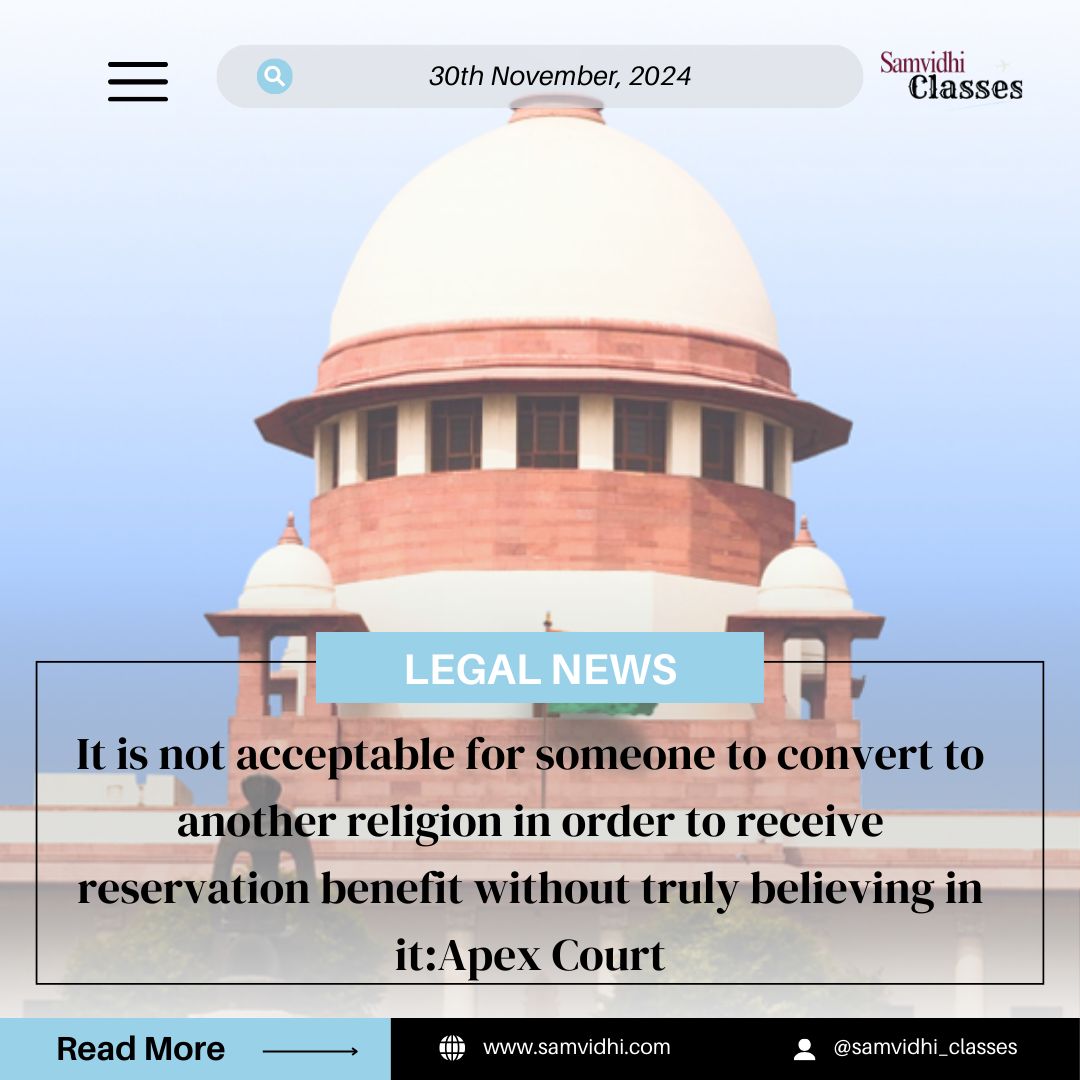Case Name: C. Selvarani V. Special Secretary-cum-District Collector
The Division Bench of Justice Pankaj Mithal and Justice R. Mahadevan, strictly observed in evaluating this appeal regarding the entitlement to a Scheduled Caste community certificate by an individual who is actively practicing Christianity but claims to be Hindu that conversion cannot be allowed if the primary goal of conversion is to obtain the benefits of reservation without any genuine belief in the other religion. This is because granting benefits of reservation to those who have such a hidden agenda will only undermine the social ethos of the reservation policy.
The Court further clarified that the petitioner in this case was a Christian by birth and could not be classified as belonging to any caste. There must be more than just a claim because the factum of reconversion is contested. There was a factual determination that the appellant still identifies as Christian, but there was no evidence in the records that she or her family had converted back to Hinduism. Given circumstances of the case, the appellant’s argument that the caste would be eclipsed following conversion and resuming upon reconversion is therefore unsustainable.
After reviewing the case, the Court cited Article 341 of the Constitution as the legal position pertaining to the case at hand. It also noted that, with regard to the Union Territory of Pondicherry, only those castes listed in the Schedule appended to the S.C. Order, 1964, would be considered Scheduled Castes, and that anyone who professes to be a member of one of these castes would be considered to be a member of the Scheduled caste.
The Supreme Court then affirming the ruling by Kerala High Court’s decision in Sapna Jacob v. State of Kerala, wherein the High Court held that a court cannot test or gauge the sincerity of religious belief, but that a court can determine the true intention of men lying behind their acts and can definitely determine from the circumstances of a case whether a pretended conversion was actually a means to a greater end.
The Supreme Court further observed that India is a secular nation and that, in accordance with Article 25 of the Constitution, every individual is free to practice and declare any religion they so want. When someone is truly moved by a different religion’s beliefs, doctrines, and spiritual ideas, they may convert; but, conversion for the express purpose of receiving a reservation cannot be allowed. The Court noted that the evidence in this particular case made it abundantly evident that the appellant routinely attends church and actively follows Christianity. In spite of this, the appellant asserted that he was Hindu and applied for a Scheduled Caste certificate in order to find work. The appellant cannot maintain her Hindu identity after being baptized, and such a dual claim is absurd. “Therefore, it would be against the very purpose of reservation and constitute constitutional fraud to grant Scheduled caste communal status to the appellant, who is a Christian by religion but claims to be still practicing Hinduism, solely for the purpose of obtaining employment reservation”.




